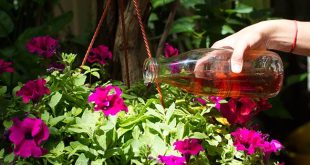7 All Natural Allergy Remedies
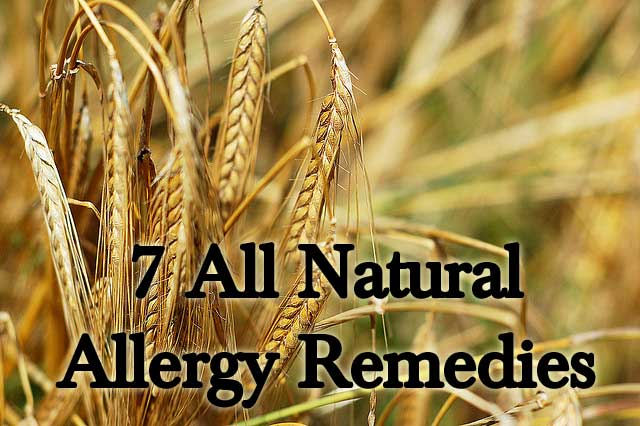
abounding life that comes in these times is enough to put a smile on your face, it probably won’t be long before you catch yourself sneezing, wheezing, and itching your eyes from all that springtime pollen.
Many prescription drugs and medical treatments stop the negative effects that these extra allergens bring, however that’s often only long enough for headaches, drowsiness, and other even worse side effects to take hold. Skip the sneezes, skip the pills, and get back outside to enjoy all the spoils of the season with these natural allergy remedies.
1. Neti Pot and Saline Rinse:
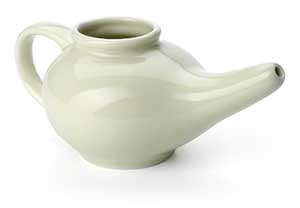 Since allergies are caused by the presence of outside agents setting off certain unwanted triggers, it follows that the best way to rid yourself of these allergies is to remove these particles. A Neti Pot (BUY HERE) does just that by flushing out the nasal cavities with a gentle saline solution. Simply use a pre-made saline mix with water (warm but not hot). Pour the mixture into the Neti Pot, tilt your head, and rinse the solution down one nostril and out through the other. *A simple hack for this hack is to make your own saline solution. Use one teaspoon of Himalayan or sea salt and mix with a quart of boiled and distilled water.
Since allergies are caused by the presence of outside agents setting off certain unwanted triggers, it follows that the best way to rid yourself of these allergies is to remove these particles. A Neti Pot (BUY HERE) does just that by flushing out the nasal cavities with a gentle saline solution. Simply use a pre-made saline mix with water (warm but not hot). Pour the mixture into the Neti Pot, tilt your head, and rinse the solution down one nostril and out through the other. *A simple hack for this hack is to make your own saline solution. Use one teaspoon of Himalayan or sea salt and mix with a quart of boiled and distilled water.
2. Saline Spray:
If the thought of a daily (or twice daily) nasal rinse doesn’t get you excited, you can also just try a simple saline spray. The idea here is similar to that of a Neti Pot — to get allergens out with a light rinse. The difference is that with a spray, the user experience is a little more gentle, and the distribution of the saline is a little more exact. Although a Neti Pot may be a more high-power method, saline sprays are quick, convenient, and portable. Just purchase one at your local pharmacy and keep it in your pocket or purse for those moments when you feel the allergies coming on. Most users feel rapid results after using these nasal sprays.
3. Local, Raw Honey:
Another great way to combat allergies is to get your body better acquainted to the differen kinds of pollen which are specific to your area. Results can be mixed when using honey to treat allergies, but many claim the benefits of locally sourced honey. By consuming local honey, you let the bees help you out by introducing your system to the local pollens and providing you with helpful enzymes. Eating this healthy, delicious, and raw honey does wonders for allergies because it contains some pollens from your environment which may be negatively affecting you. Just do your best to eat a teaspoon or two of locally sourced honey every day. Try to find the closest source possible, and enjoy eating your way to being allergy free. You will need to make sure the honey was made at the same time you experience allergies, so if you have spring allergies, the honey must have been harvested in the spring so that it contains the correct pollens.
4. Nettle Leaf:
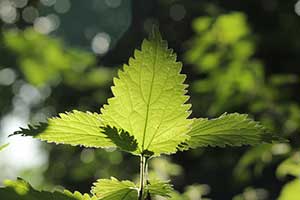
Another natural and effective remedy is nettle leaf. This botanical contains carotene, vitamin K, and quercetin (a natural and stabilizing flavonoid). Nettle leaf will fortify your cells and inhibit the production of histamine which is what causes a nasty allergy outbreak. To use nettle to fight allergies, make sure you are utilizing the leaf of the plant; the root is also sold and used to treatment, but it’s a treatment for the prostate. One can simply make tea with the leaves or can purchase a supplement of crushed leaves in capsule form.
5. Probiotics:
Allergies are our bodies’ reactions to an imbalanced immune system. When we don’t have a proper balance of healthy bacterias in our gut, our body reacts wildly to a number of stimuli unnecessarily. That is when we experience allergies. A pregnant mother’s diet and gut bacteria levels can actually affect her child’s susceptibility to allergies. With a healthy diet including probiotic food, mother’s can decrease their child’s risk.
Probiotics can help more than pregnant mothers and their children. If you are experiencing allergies, try consuming more probiotics. Kefir and kombucha are great sources of this healthy gut bacteria, so check out the fermented foods which could be helping you. If you’re not a fan of these, never fear: probiotic supplements can also help in combatting pesky allergies.
6. Butterbur
Butterbur extract comes from the root of the butterbur shrub which has been recently getting a lot of press in Europe for it’s powers to treat hay fever. The powerful extract can also help
a variety of pollen, dust, and dander-based allergies. Although it is a natural remedy for your allergies, butterbur may not always be a safe option. Butterbur may also contain a compound which, when taken in too big of a quantity, could cause liver and kidney toxicity as well as increase one’s risk for certain types of cancer and blood clots. Make sure to consult with your doctor before shopping around for a butterbur supplement, and be sure to do your research when choosing a product.
7. Air Filters:
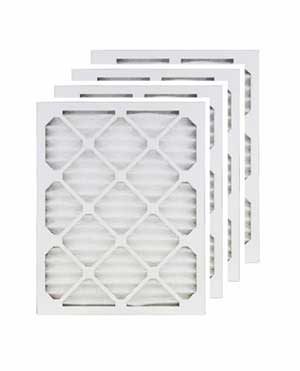 Sometimes our allergies aren’t caused by pollen at all, but rather dander, dust and even mold which contaminates the air of our homes. If your allergies often hit even when you’ve been indoors, you may want to identify just what you’re reacting to and also invest in some air filters for your home or workspace. Air conditioners, dehumidifiers, and HEPA (high-efficiency particulate air) filters can all decrease the amount of allergens floating in around in your home. By using these filters, one can eliminate moisture in the air and floor, which is commonly the culprit of allergy-inducing mold and mildew.
Sometimes our allergies aren’t caused by pollen at all, but rather dander, dust and even mold which contaminates the air of our homes. If your allergies often hit even when you’ve been indoors, you may want to identify just what you’re reacting to and also invest in some air filters for your home or workspace. Air conditioners, dehumidifiers, and HEPA (high-efficiency particulate air) filters can all decrease the amount of allergens floating in around in your home. By using these filters, one can eliminate moisture in the air and floor, which is commonly the culprit of allergy-inducing mold and mildew.
Since everyone reacts differently to allergens, everyone will react differently to these remedies. Some may have limited effects, so you may need experiment with a few before finding what is exactly right for you. Try them out, get outdoors, and begin to breathe easy and allergy-free!
 Home and Gardening Ideas At home and Gardening ideas we believe inspiring readers about homesteading, self sufficiency
Home and Gardening Ideas At home and Gardening ideas we believe inspiring readers about homesteading, self sufficiency





